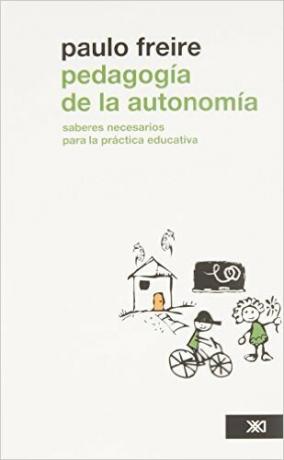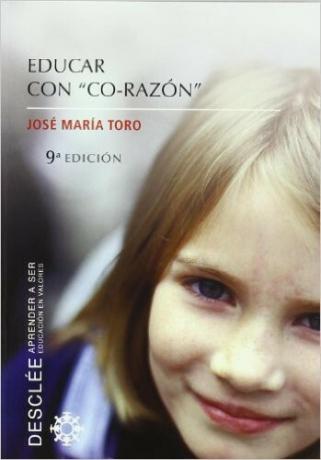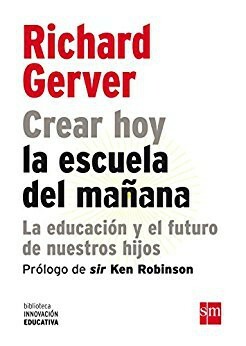20 essential Pedagogy books (manuals and guides)
The educational community is numerous and as active as it is decisive. It depends on the work of teachers, educational psychologists and other specialists whether or not there is a possibility generation of young or not so young can become well-informed and easy-to-think people critical.
This selection of pedagogy books can be useful to face the challenges of education and the changes that have occurred in this area in the best possible way.
- Recommended article: "The 25 best education websites"
Best Books for Educators
Here you can see a series of works especially suitable for professionals in the field of education.
1. How to teach better (M. Ponce)
From a constructivist perspective, in this book Proposals are made on ways to facilitate the emergence of autonomous learning dynamics on the part of the students: reinforce the strengths of the students, know how to properly recognize the feedback of the teaching measures, etc.
- If you are interested in this work, you can read more about it by clicking here.

2. Mobile Digital Devices in Education (E. Vázquez-Cano and M. Luisa Sevillano)
The emergence of mobile digital devices has reached the world of education with force, and this book explores both its risks and associated opportunities. One of the most recommended pedagogy books to keep up to date on these issues.
- To see more information about the book, see here.

3. Pedagogy of autonomy (P. Freire)
Paulo Freire was one of the most influential educators in history, and in this book he expresses a good part of the principles that structured his work. Especially important is the way in which Freire defines good education, understood not as a transmission of knowledge that must be memorized but as an aid so that students can develop areas of interest and the ability to educate themselves.
- On this page you can read more about the book.

4. Psychology and Pedagogy (J. Piaget)
One of the great classics of Educational Psychology by the father of Evolutionary Psychology. A little gem that, despite not being up to date on the advances in this matter (it was published in 1970), lays the theoretical foundations and points to the main problems that education systems have been facing at the end of the 20th century and the beginning of the XX.
- You can order it here.
5. High capacities in the inclusive school (M. Sánchez Dauder)
This book explains, in the form of a story, different proposals to make the educational needs of gifted students and those of the rest of the students can come to fit together without breaking the harmony in the classroom.
- If you are interested in the book, you can get it here.

6. Educate with heart (J. M. Toro Ales)
A book whose main function is to inspire. Its pages talk about what education is, what it could be, and the way in which teachers and students inhabit the classroom. One of the most literary pedagogy books.
- For more information about the book, see this page.

7. Pedagogy of the oppressed (P. Freire)
Another of the great classics of this Brazilian educator. In "Pedagogy of the oppressed", Freire proposes a critical pedagogy that makes social change easier towards a more egalitarian society, empowering students' critical thinking and giving them the tools to combat confused manipulation as acculturation.
- If you are interested in this work, here you will see more information.

8. Educate Today (P. Bronson and A. Merryman)
A book based on surprising discoveries about how young people think and act. Its pages talk about such important issues as aggressiveness in boys and girls, when they start to lie and why they do it, fights between siblings, etc. It can be useful for both parents and educational professionals.
- You can get it here.

9. Be a teacher (S. Naughty and Lieutenant)
This is not a theoretical book on how to get to the world of education, but a small and simple emergency manual for those who have started teaching in a classroom. The book's subtitle says it all: "what I wish they had told me when I started teaching."
- On this page there is more information about the book.

10. Create today the school of tomorrow (R. Gerver)
Proposals and theoretical and practical foundations on the paradigm shift in education. One of the books for teachers that aims at the development of teaching models based on innovation.
- You can download it from this Amazon page.

11. rEDUvolution (M. Perhaps)
María perhaps, the author of this book, is a professor of Art Education at the Complutense University of Madrid, and in this work she shows several of the challenges that teachers must face if they want to transform education into a tool for personal and social change.
- Here there is more information about the book.
12. Pedagogy against Frankenstein (M. TO. Santos Guerra)
A selection of texts about the need to understand the content taught in class in a global way, as a system that, as a whole, provides a basis for students to train in all areas.
- do click here to read more.
13. Cooperative learning in the classroom (J. C. Torrego and A. Black)
Cooperative learning is one of the great untapped potentials of education systems, often fully focused on an individualistic and competitive study environment. This book collects information extracted from the theorization and implementation of cooperative learning programs over the last few years.
- You can read more about this book clicking on this link.
14. The joy of educating (J. M. Marasé)
Keys and strategies to transform the classroom in which teaching can flow through creativity and, why not, also fun. One of those books for teachers in which the objective is not only focused on the need to transmit knowledge, but also in doing this in a way that those lessons mean something to students.
- If you are interested in getting it, you can do it here.
15. Resources to educate emotions (R. González and L. Villanueva)
In this book the main questions about emotions that must be addressed from education are raised and methods are proposed to recognize them effectively and help others to know how to manage them in the classroom.
- If you are interested, you can learn more about the book clicking here.
16. The Well-trained mind: a guide to classical education at home (Susan Wise Bauer)
A guide full of guidelines to follow to educate children at home, give them the personalized treatment they need and learn to respond to their needs.
- You can read more about this work here.
17. Teaching community: a pedagogy of hope (Bell Hooks)
How to combine education and freedom to choose which paths of knowledge to follow and which ones not to take or leave for later? Here we talk about which educational strategies work and which do not, how to avoid discrimination in the classroom how to motivate students... All this, from the personal and experienced point of view of the author.
- If you want to know more about this work, Click here.
18. Pedagogy and the politics of hope (Henry A. Giroux)
This excellent book explores the power relations that are established in the classroom and the way in which that the conflicts that can occur in it are resolved and, on the other hand, how they should be settled. Schools are microcosm in which forms of oppression, racism, etc. can be reproduced. Knowing how to understand this fact and act accordingly is necessary.
- To read more about this work, Click here.
19. Education in the 21st century (L. Bartolomé and other authors)
An interesting proposal to learn about the challenges and possibilities that have appeared in education in recent years.
- If you are interested in getting this book or knowing more about it, Click here.
20. Educational equality and cultural difference (Henry A. Giroux)
How promote equality and offer fair treatment to a group of students in which there are people from different cultures? Faced with this apparent paradox, Henry A. Giroux offers one of the sharpest pedagogy books of his.
- On this link you will find more information about the book.

